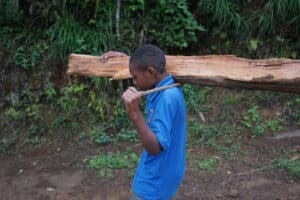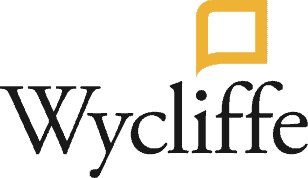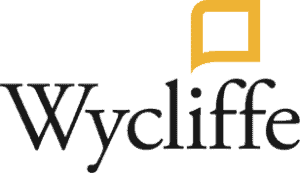“Take my yoke upon you…and you will find rest for your souls. For my yoke is easy and my burden is light.”
Jesus’ words in Matthew 11:29-30 are some of the most difficult to translate into the Enga language of Papua New Guinea (PNG). From the time that I became a Christian, I was taught that a yoke is a wooden crosspiece that is fastened over the neck of two animals and attached to a plow or cart that they are to pull. This is an easy enough concept to understand for people who come from societies that make use of beasts of burden, but in PNG, there are no beasts of burden. Consequently the concept of a yoke placed on animals is completely foreign. Thus, we have struggled greatly in our attempt to translate Matthew 11:29-30.
Recently, however, I came to learn that a yoke can also refer to a wooden frame that a person places on his neck or shoulders to make it easier to carry a heavy load. Indeed, the Bible often makes figurative use of the word ‘yoke’ as it refers to people and not to beasts of burden (see 1 Kings 12:4-14). As I was pondering that idea, I began to notice that when Engan men carry heavy logs on one shoulder, they often balance the load by supporting it with a small stick placed across the other shoulder. It then struck me that the small stick they use to help carry a heavy log is like a yoke.
often makes figurative use of the word ‘yoke’ as it refers to people and not to beasts of burden (see 1 Kings 12:4-14). As I was pondering that idea, I began to notice that when Engan men carry heavy logs on one shoulder, they often balance the load by supporting it with a small stick placed across the other shoulder. It then struck me that the small stick they use to help carry a heavy log is like a yoke.
Excited by this realization, I quickly asked my friend Benjamin if the stick that men use to make it easier to carry a heavy log has a name in Enga. Sure enough it does. It is called a pyakende. With great anticipation, I asked the translation team if we could use the word pyakende to translate the word ‘yoke’. After wrestling with the phrasing for a little while, we came up with the following translation: “In order to remove the heaviness from your shoulders, take my pyakende. When you have taken it, you will receive rest. As my pyakende helps you, what I give you to carry is not heavy and you will carry it without struggling.”
Story and photo by Adam Boyd
Source: The PNG Experience

